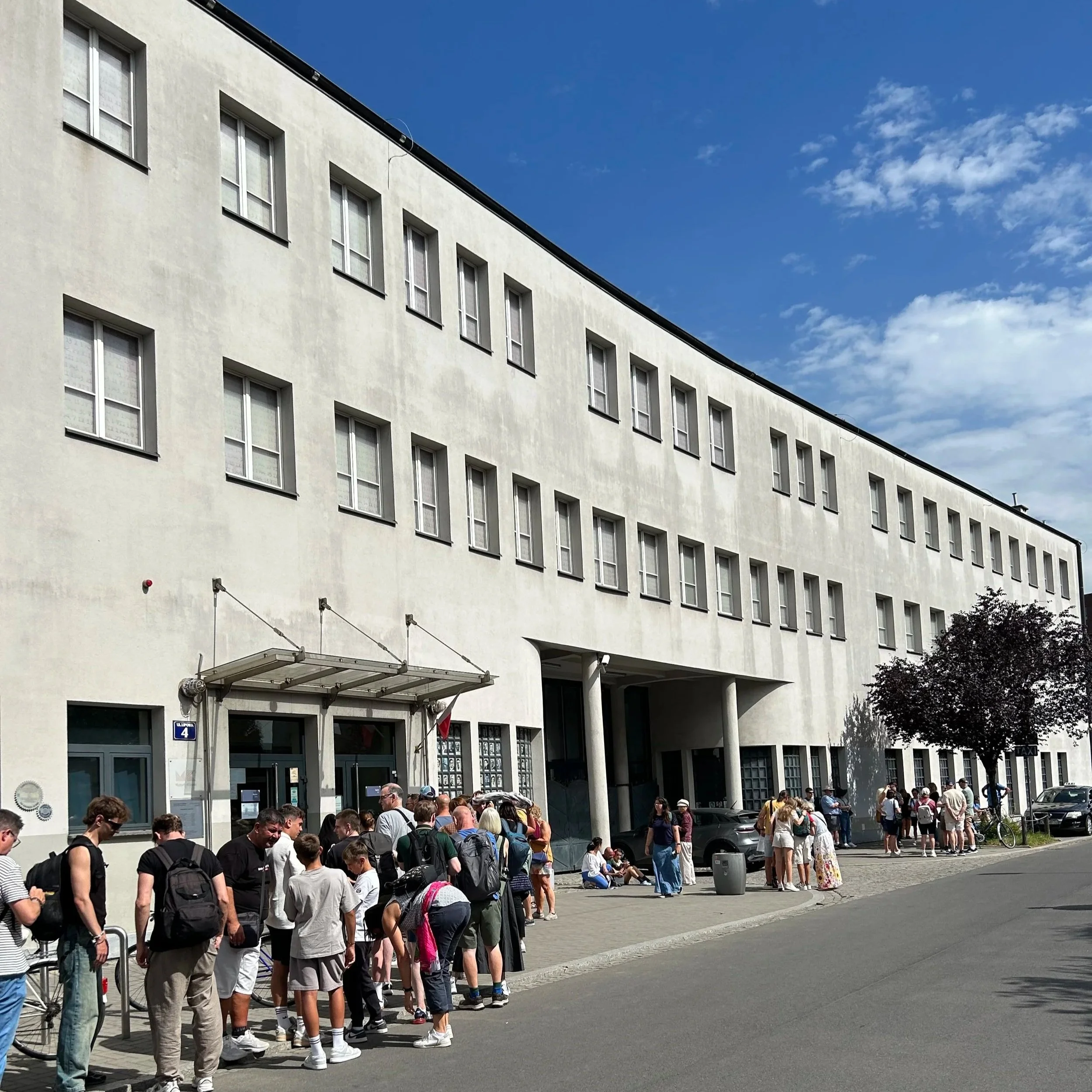Oskar Schindler's Factory: Thoughts
Thoughts..
Like many in the 90’s I saw Spielberg’s Schindler's List. Whilst an undoubtedly moving film, it’s probably not one you’d want to watch twice. A tale of one man’s redemption through good works as he battles the Nazi occupiers cruelty in their persecution of the Jews in Poland.
I’m in Krakow this week.
This morning I got up early and walked across the Vistula River and onto the Oskar Schindler Museum situated in the same factory buildings where he protected hundreds of Jews from the Nazi authorities and death.
I didn't know what I expected. A worthy museum perhaps, with exhibitions of metallurgy perhaps and a dry retracing through the themes of the movie. That’s not what I found.
I would say three quarters of the museum concentrates - through photographs, movies and artefacts - on the history of Krakow during the build up to the Nazi invasion and occupation of Poland.
You start at the top of the building and work down as the exhibitions take you through life in Krakow through summer 1939 to 1945 and the inhumanity and savagery - even pettiness - of the Nazi occupation. The tragedy of the Polish people generally, and the sizeable Jewish population in particular, is laid out through well chosen and contemporaneous displays.
Aside: It’s quite shocking to see displays of original Nazi regalia, from banners to machine guns, right through to branded tableware. These days the swastika is so verboten it’s quite a reality check to see the real deal that, instead of some lazy reference point, was actually - not so long ago - a living symbol of real evil.
Swastikas aside, there are many other pointed reminders of the executions, restrictions and even the Germanification of Krakow (language, education, housing; even street names). (1) We in Britain, through the English Channel, Spitfires, the Royal Navy, Churchill and good luck (the free Poles too!), avoided having to face this calamity. (2)
Unlike other museums I’ve been to, the fact that this one is cited in the actual location of so much history, is somewhat humbling. (3) A couple of times, I will admit, I was holding back tears. History weighs heavy in the location, in the subject matter. And it wasn’t so very long ago. And, if history is any guide and the human condition doesn’t change - and it won’t - this could be a path we go down again.
It ends with the Soviet occupation in1945. The Poles gained a country but lost their freedom.
So, what do I conclude:
1) Definitely go to this museum. It’s well worth it and any museum that provokes thought, reflection and a sense of an individual’s heroism against a harsh world is worth the (low) admission price.
2) A renewed hatred of the Nazis. There’s a reason they’re viewed in such disgust. I would caution though that they weren’t the only ones in history with a bad reputation (all countries, peoples and cultures are guilty). They might not be the last.
3) There is hope. I walked back through Kazimierz - the historical Jewish district of Krakow. I sensed no animus but instead saw Jewish shops and restaurants (and even an Israeli flag). Many tourists. History is long with many winding roads shaded from view. Perhaps, sometimes, they lead from a dark place into the light. It’s never perfect though.
Notes
1) Ignorant buffoon that I am, a cursory reading of history reveals the Germification of the Polish language and culture isn’t confined to 1939-45. The whole 19th Century after the Partitions of Poland (1772/95), for example. In the interest of balance, the forced deportations of ethnic Germans from Poland after 1945 shouldn’t be ignored. Which all goes to show, with history, the more you know, the less you really know. Always be alert to simplification, in both broad culture and - most particularly - in the narrow interests of politicians who use collective ignorance to drive a nefarious agenda.
2) The semi satirical American put down of Brits: “You’d all be speaking German if it wasn’t for us,” never felt so chillingly real.
3) A similar sensation you get in the Anne Frank House in Amsterdam. Different country, same tragedy.

